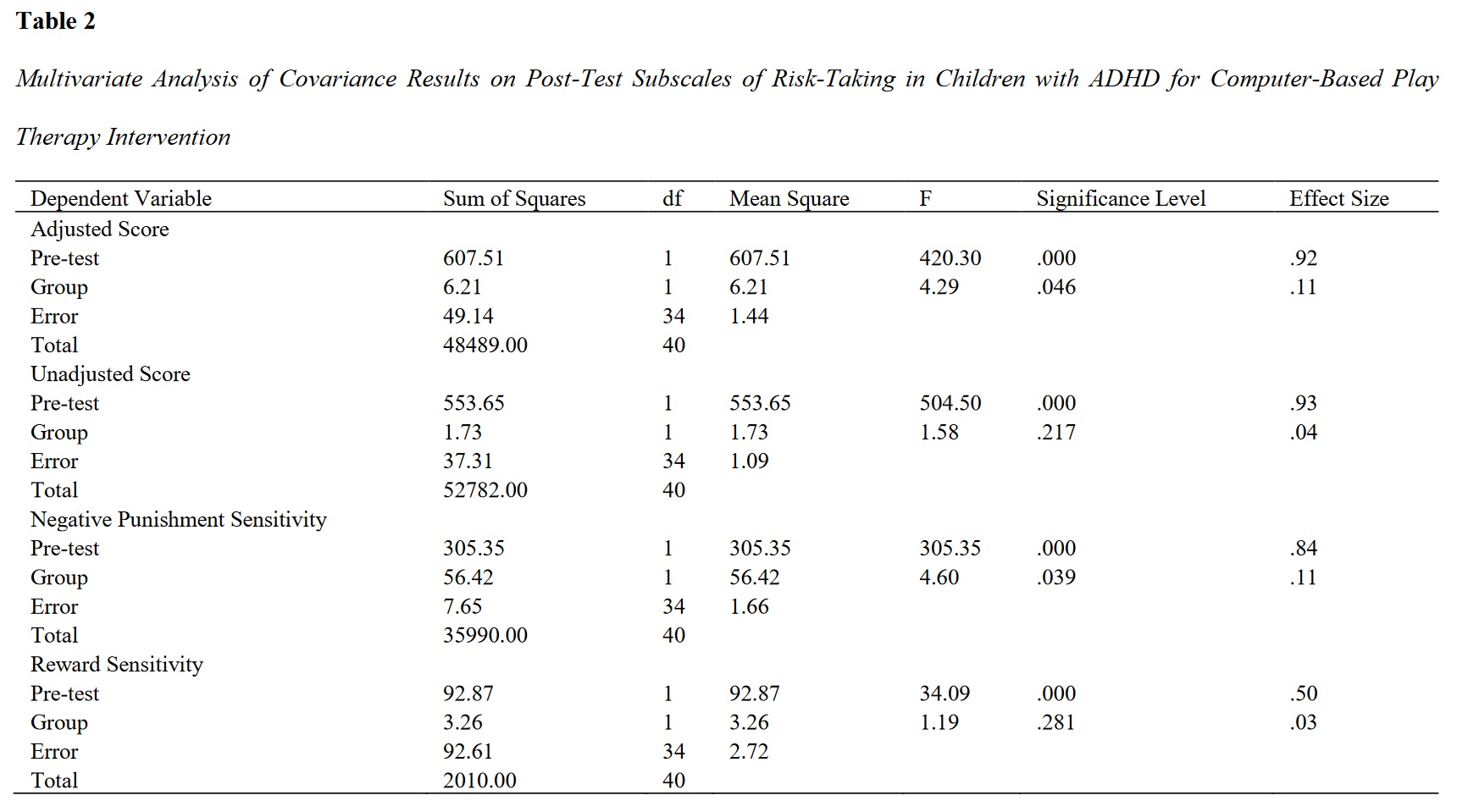Comparison of the Effectiveness of Computer-Based Cognitive Rehabilitation and Cognitive-Behavioral Play Therapy on Risk-Taking in Children with Attention Deficit/Hyperactivity Disorder
Keywords:
Computer-based cognitive rehabilitation, play therapy training based on cognitive behavioral, Risk Taking, Attention Deficit/Hyperactivity DisorderAbstract
Objective: The aim of this study is to compare the effectiveness of computer-based cognitive rehabilitation and cognitive-behavioral play therapy on risk-taking in children with ADHD.
Methods and Materials: This quasi-experimental study used a pre-test-post-test design with a control group. The sample included 60 children aged 7 to 13 years who visited psychology centers in Golestan province in 2022. They were divided into two experimental groups and a control group. The Balloon Analogue Risk Task (BART) was administered to them. The first experimental group received computer-based cognitive rehabilitation training, while the second experimental group underwent cognitive-behavioral play therapy. The control group received no therapeutic intervention. Data were analyzed using SPSS software version 23, utilizing covariance analysis and the Scheffé post-hoc test.
Findings: The results indicated a significant difference in the risk-taking variable between the first experimental group and the control group, as well as between the second experimental group and the control group (P<0.05). However, there was no significant difference between the two therapeutic approaches in the main subscale of risk-taking.
Conclusion: Both therapeutic approaches were effective in reducing risk-taking in children with ADHD, and both can help children with ADHD.
Downloads

Downloads
Additional Files
Published
Issue
Section
License
Copyright (c) 2024 Behnoush Elahi (Author); Bahram Bakhtiari Saeed (Corresponding Author); Kazem Shariatnia, Masoumeh Damghani Mirmahalle (Author)

This work is licensed under a Creative Commons Attribution-NonCommercial 4.0 International License.







































